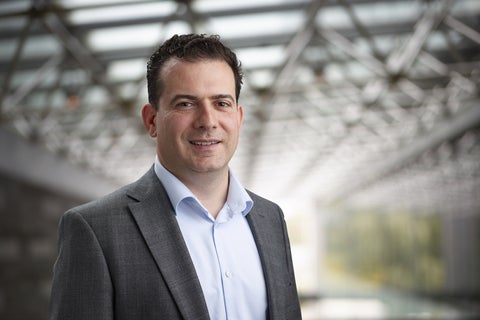
Michele Mosca
Michele Mosca
Michele Mosca obtained a BMath at Waterloo in 1995 and was recipient of the Mathematics Faculty Alumni Gold Medal. He went to Wolfson College, University of Oxford, on a Commonwealth Scholarship, and received an MSc in Mathematics and the Foundations of Computer Science (with Distinction) in 1996. He continued at Oxford on a UK Communications-Electronic Security Group scholarship, obtaining a DPhil in quantum computer algorithms in 1999 while holding the Robin Gandy Junior Research Fellowship.
Dr. Mosca started the quantum computing effort at Waterloo in 1999, co-founded IQC in 2002 and served as its Deputy Director till 2016. He is a founder of the ETSI-IQC workshop series in Quantum-Safe Cryptography, and the not-for-profit Quantum-Safe Canada. He co-founded evolutionQ Inc. to support organizations as they evolve their quantum-vulnerable systems to quantum-safe ones and softwareQ Inc. to provide quantum software tools and services.
He is also a founding member of the Perimeter Institute for Theoretical Physics. Since 1999 he has been a faculty member in the Combinatorics & Optimization department of the University of Waterloo, and a member of the Centre for Applied Cryptographic Research until it merged into Cybersecurity and Privacy Institute in 2019. In addition, he has cross-appointments with Computer Science, Applied Mathematics and Physics. Dr. Mosca has made major contributions to the theory and practice of quantum information processing, particularly in the areas of quantum algorithms, techniques for studying the limitations of quantum computers, quantum self-testing and private quantum channels. Together with collaborators at Oxford, he realized several of the first implementations of quantum algorithms using Nuclear Magnetic Resonance. He has made major contributions to the phase estimation approach to quantum algorithms, including the hidden subgroup problems, and quantum searching and counting. In the area of quantum security, he helped define the notion of private quantum channels and develop optimal methods for encrypting quantum information using classical keys.